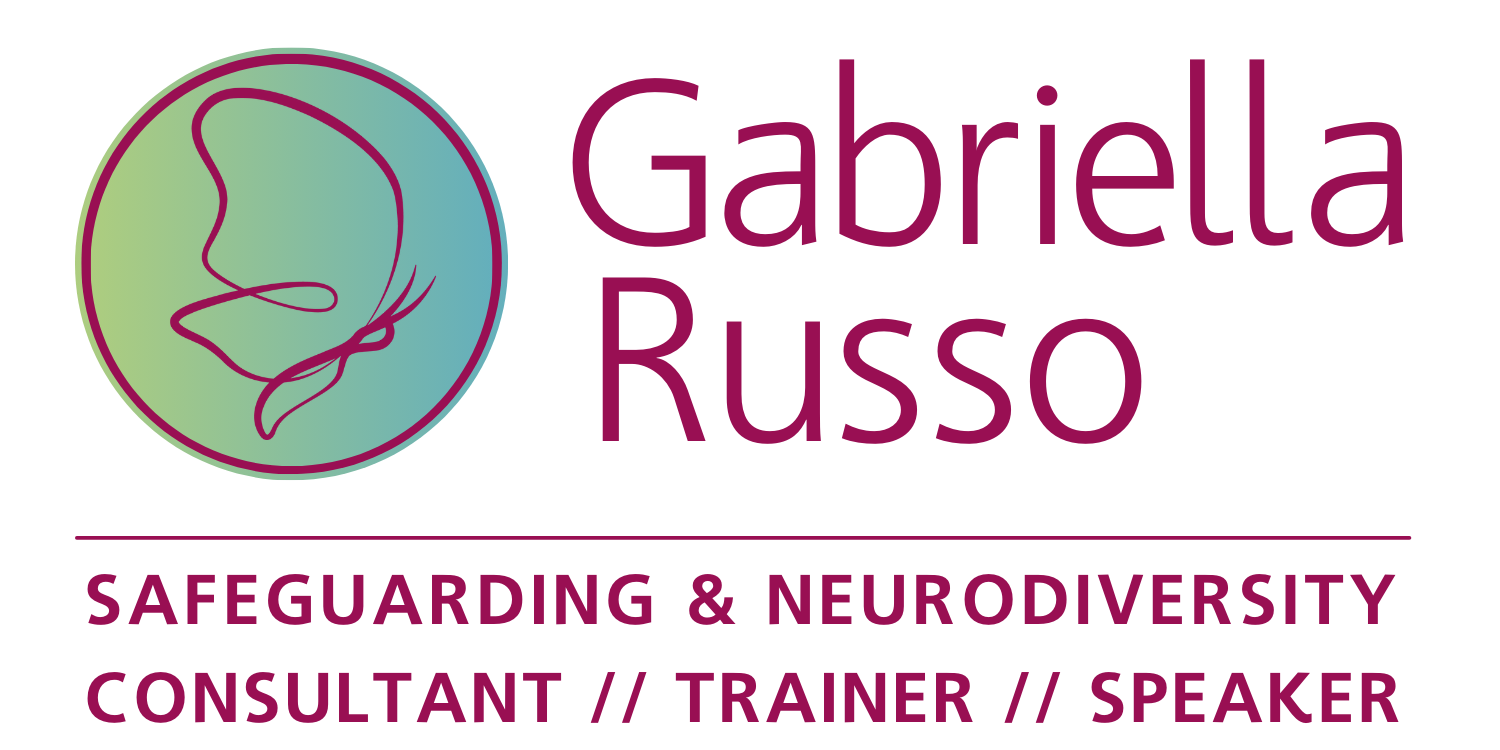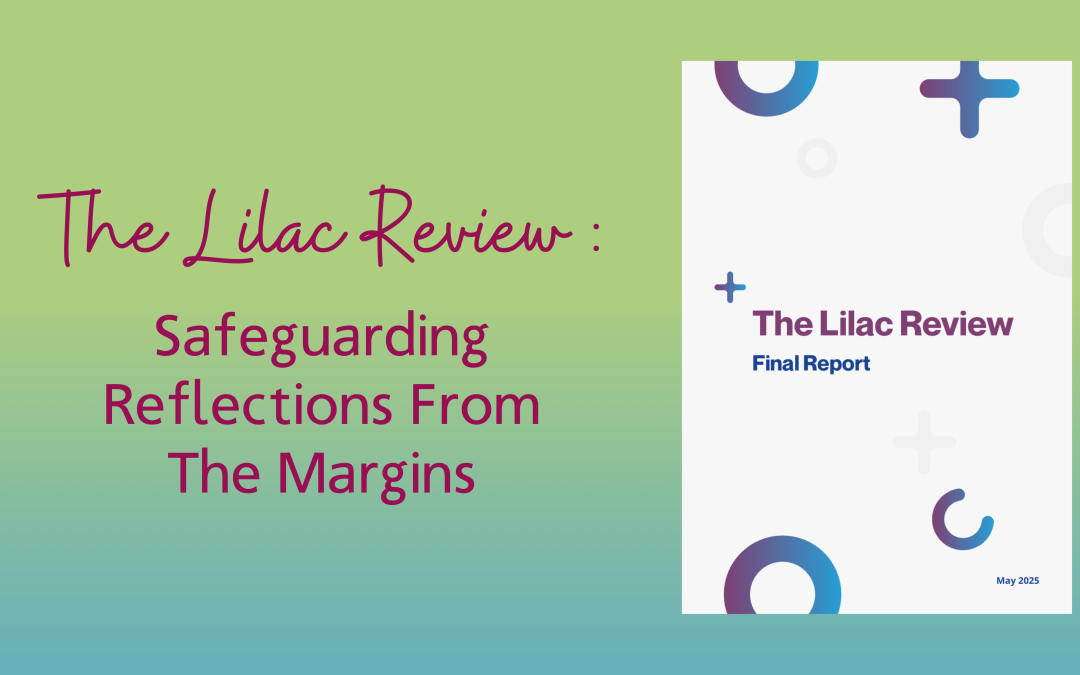When the final Lilac Review was released earlier this month, it was rightly celebrated as a vital step forward for Disabled and neurodivergent entrepreneurs across the UK – it’s a review that I certainly welcome. With its focus on finance, procurement, networks, AI and accessibility, it offers tangible recommendations that could shift the landscape for many.
But as I read it, I couldn’t help but notice the gaps. Not in the data, or even the intention – but in the emotional and safeguarding realities that remain unspoken.
As a neurodivergent safeguarding professional, and someone who has spent over 30 years walking alongside people who are navigating exclusion, trauma, and systemic misunderstanding, I wanted to bring a different lens. Not to oppose the report, but to expand it. To hold space for the risks we rarely name.
This series of five reflections explores what we need to consider next, if we are serious about creating not just inclusive policy, but cultures of safety and dignity.
1. Invisible Harm in Plain Sight
The Lilac Review speaks clearly to systemic exclusion. But it stops short of naming the safeguarding risks that arise when systems overlook emotional and psychological harm.
Entrepreneurship is often celebrated as empowering. But what if your very access to finance or visibility requires repeated disclosure of painful experiences? What if the process of seeking support leaves you more exhausted than resourced?
I have supported founders who:
- Have masked distress to appear fundable
- Have felt shame after being “ghosted” by support services
- Have been retraumatised by forms, assessments, or application processes
Safeguarding isn’t just about preventing obvious abuse. It’s about building environments that don’t replicate the harm people have already survived. It’s about recognising when processes become too heavy for the human spirit to carry.
Support must be proactive, relational, and emotionally attuned – not simply a series of forms and touchpoints. We must start asking not just “What are we offering?” but “How might this hurt someone who is already carrying too much?”
2. Access Isn’t the Same as Safety
There is a growing awareness of the need for accessible platforms, events, and training. But access alone doesn’t guarantee belonging – or safety.
Being invited into the room isn’t the same as feeling you can exhale once you’re there.
For neurodivergent and trauma-impacted entrepreneurs, psychological safety means:
- Not having to mask distress or over-perform
- Being able to name sensory needs, processing differences, or emotional limits without fear
- Knowing that unmasking won’t result in rejection or judgement
Traditional networking spaces can be emotionally overwhelming. Even well-meaning peer support groups can become performative or exclusionary without trauma-aware facilitation.
We need to design support environments that are intentionally led by lived experience. That means:
- Designing for emotional regulation
- Embedding slow, gentle pacing
- Being responsive, not just reactive
Inclusion isn’t about ticking a diversity box. It’s about creating rooms where people can stop hiding who they are or bracing for the worst.
3. Procurement as a Safeguarding Issue
Let’s talk about power. Because that’s what procurement often comes down to.
Procurement was rightly named in the Lilac Review as a key area of exclusion. In fact it names it as one of the biggest barriers Disabled and neurodivergent entrepreneurs face. But again, what is missing is a safeguarding lens.
Procurement systems are not neutral. They reflect the values of those who built them.
As well as these being some of my own experiences, I have heard too many stories of entrepreneurs who:
- Are traumatised by inaccessible tender portals and systems that time-out if you take too long
- Are faced with pages of jargon that drain their energy and self-worth or dismissed because their communication style is different
- Are told their bid was unsuccessful, but are given no feedback, no humanity, and no next step.
We’re not just talking about inconvenience. We’re talking about systems that quietly erode people’s confidence, stability, and safety.
When you’ve been conditioned to expect rejection, another closed door confirms your worst fears. When you’ve spent hours preparing a bid with limited executive functioning capacity, silence can be devastating.
Procurement must be redesigned with:
- Consent-led processes
- Plain language communication
- Accessible, trauma-aware systems that build trust, not erode it
Let’s stop treating exclusion as a side effect of complexity. It’s a design choice. And it can be changed.
4. AI Needs a Trauma-Informed Heart
The Lilac Review speaks to AI as a breakthrough for inclusion. I do agree, and find it a useful tool myself – but we must tread carefully.
AI has the power to reduce barriers. But if designed without trauma-informed principles, it can also replicate exclusion in digital form.
Many neurodivergent founders (myself included) already use AI tools to:
- Draft communications without social anxiety
- Plan tasks without executive dysfunction taking over
- Reduce sensory overload through automation
But these tools also risk:
- Misunderstanding tone or urgency
- Overwhelming users with too many options
- Creating data-driven bias that penalises non-normative behaviours
Trauma-aware AI design must:
- Centre autonomy and consent
- Allow customisation without complexity
- Include neurodivergent and Disabled voices in development, testing, and feedback
I believe in the power of tech. But I believe more in the power of people. AI should serve as a bridge, not a barrier. And right now, we need to build systems that restore dignity and reflect our full humanity – not just our productivity.
5. Culture Eats Policy for Breakfast
Policy matters. But culture will always speak louder.
The Lilac Review proposes strong, structured interventions. But unless these are implemented within cultures that truly value difference, the impact will be limited.
I’ve worked with many organisations that say the right things on paper. But the lived experience of staff or founders still includes fear, burnout, and erasure.
In inclusive cultures:
- Boundaries are respected without needing to be justified
- Silence isn’t read as disengagement
- Pauses, slowness, and no’s are honoured as part of healthy contribution
Inclusion with integrity means slowing down. It means resisting urgency when urgency harms. It means holding space not just for success, but for struggle.
Let’s move beyond accommodation. Let’s ask: What kind of culture are we reinforcing? And who feels safe here?
Where Do We Go From Here?
The Lilac Review has opened a door. But it’s what we build next that truly matters.
Let’s embed safeguarding into:
- Entrepreneurial support
- Policy design
- Funding frameworks
- Digital tools
Let’s create spaces where people don’t just have access – they have voice, value, and safety.
And let’s remember: inclusion is not about charity. It’s about justice.
Justice begins when people are no longer asked to prove their worth in spaces that should already know they belong.
If these reflections resonate, I invite you to:
- Share your own insight or experience
- Reflect on what safety looks like in your work
- Ask how you can lead with empathy, not urgency

